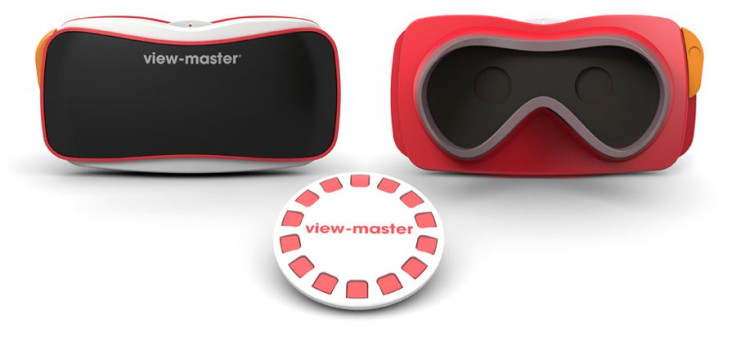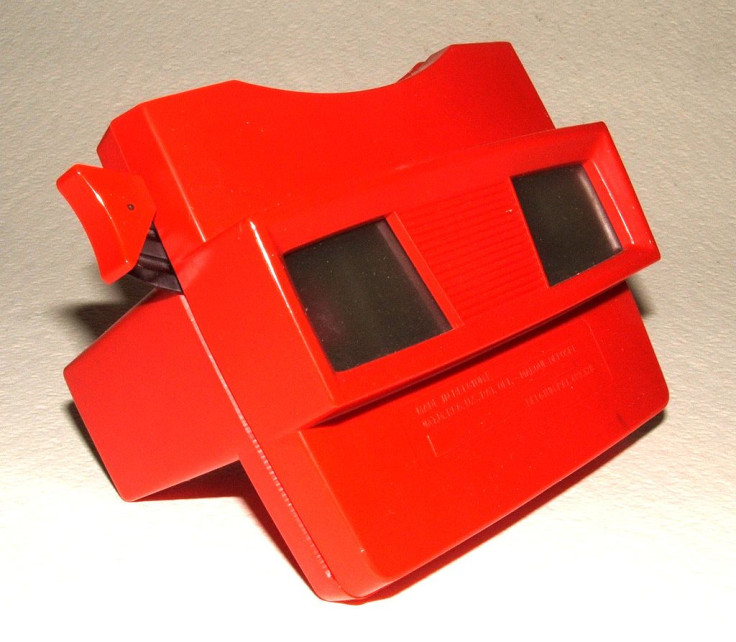Updated View-Master Launches Mattel, Google Cardboard Into VR Battle Against Oculus Rift

Who needs positional tracking, integrated audio and high-resolution graphics when you can wax nostalgic with the iconic Mattel View-Master? That’s what Mattel is hoping customers are asking themselves after the company announced a partnership with Google that inserts the struggling toymaker into a race with the upcoming virtual reality headset Oculus Rift.
Mattel announced Friday at the annual Toy Fair trade show in New York City that it has formalized an agreement with Google to make a digital version of the View-Master available with Google Cardboard VR technology. The View-Master has been a favorite of generations of kids (and adults), who flip through a circular cardboard "reel" of stereoscopic 3D photos by holding a camera-like plastic device up to their eyes.

The View-Master first went on display at the 1939 World’s Fair, but it will now work by inserting an Android smartphone where reels were once placed, according to USA Today. View-Master “experience reels” will transport users into any number of virtual reality universes, ranging from dinosaurs to outer space and modern-day cities.
The physical View-Master, a nod to the past, will be available in the fall for $29.99 and come with a sample reel. Extra three-pack reels will cost $14.99, executives told USA Today. It will initially launch on Android phones and be compatible with a custom Mattel app as well as any Google Cardboard-compatible app in the Google Play Store.
The partnership with Mattel already is being cited as another win for Google as it continues to explore the world of virtual reality. The highly touted Oculus Rift system has been praised as the future of not only video games, but media consumption. Yet, after years of development, the company still hasn’t confirmed a release date or price point for the headset.
Enter Google Cardboard. The decidedly low-tech device uses magnets, rubber bands and fasteners to attach a smartphone to the customer's face. What it lacks in sex appeal it makes up for in options, with the Cardboard app earning rave reviews for making Street Views more immersive.
But, as toy industry analyst Sean McGowan of Needham & Co. told the Washington Post, “this is a much bigger deal for Mattel than Google.” The maker of Barbie dolls and Hot Wheels toy cars has seen its stock tank by 30 percent since January 2014, with insiders citing the company’s inability to infuse technology with features for a younger generation. Part of the reason for that could be that the average toy price is $9 compared with a substantially higher cost for anything tech-related.
“This is going to be a fairly substantial departure for Mattel,” Steph Wissink, a research analyst with Piper Jaffray, told the Post after Mattel announced it was collaborating with Google. “This could be game-changing.”
© Copyright IBTimes 2024. All rights reserved.





















